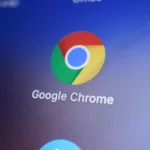
As artificial intelligence (AI) continues to advance, concerns are growing among artists and creators about the potential threats posed by AI-generated content. Many AI models are trained on human artists’ work, often scraped from the internet without consent, which can undermine artists’ livelihoods and creative control. However, researchers are now developing tools to help protect images and artworks from AI’s reach.
Protecting Art from AI Manipulation
One such tool is Glaze, developed by computer scientists at the University of Chicago. Glaze uses machine-learning algorithms to modify artworks subtly at the pixel level, rendering them perceptibly different to human eyes but confusing to AI models. This technology helps protect artists from having their unique works used to train AI models.
Artists’ Response and Advocacy
Artists are increasingly turning to tools like Glaze to protect their digital creations from AI manipulation. Many artists have unknowingly had their high-resolution works used to train AI models, which can then replicate their styles and potentially replace them in creative industries. Artists are advocating for regulations that govern how tech companies can use data from the internet for AI training.
Broader Applications
The tools designed to protect art from AI manipulation are garnering attention from various creative industries, including voice acting, fiction writing, music, journalism, and more. Many fear that entire human creative industries are at risk of being replace by automate machines.
Protecting Photos from AI Manipulation
In addition to protecting art, researchers are also developing tools to safeguard everyday internet users’ photos from AI manipulation. PhotoGuard, a prototype developed by researchers at MIT, adds an invisible “immunization” layer to images that prevents AI models from realistically manipulating the pictures. This technology adjusts image pixels in an imperceptible way, disrupting AI model attempts at manipulation.
The Era of Deepfakes
With the rise of AI-generate images, there’s a growing concern about the spread of “deepfakes,” which are manipulate videos or images that can depict individuals doing things they never did. Researchers and experts stress the need to address the risks associated with AI manipulation and take proactive measures to protect content creators and users from its potentially harmful effects.
Overall, as artificial intelligence technology continues to evolve, the development of tools to counter its potential negative impacts on artistic and visual content is becoming more critical.






